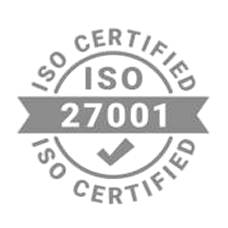.png)
Factories face mounting pressure to meet tight deadlines, reduce downtime, and coordinate complex operations across teams and departments. Yet many still rely on outdated tools like spreadsheets, emails, or fragmented software that can’t keep up with real-time demands. The result? Miscommunication, missed milestones, and operational inefficiencies that hurt both productivity and profits.
That’s where a dedicated project management platform comes in. By centralizing planning, tracking, and collaboration, it transforms how factory teams operate, making workflows transparent, tasks accountable, and deadlines achievable. In this blog, we explore why every modern factory needs a project management platform to stay competitive and future-ready.
1. Enhanced Collaboration
Manufacturing isn't a solo sport—it's the ultimate team game. Every factory needs a project management software because modern production requires seamless collaboration between departments that have traditionally operated in silos.
When engineering makes a design tweak, production needs to know immediately. When quality control identifies an issue, maintenance needs to respond quickly. A project management platform creates a digital workspace where these interactions happen naturally and nothing falls through the cracks.
The real magic happens when external partners join the mix. Suppliers can get automatic notifications about inventory levels, while customers might receive updates on order status without anyone having to send a single email. This interconnected approach is why every factory needs a project management platform to remain competitive in today's market.
2. Resource Optimization
Factory resources are expensive—equipment, materials, skilled labor—and maximizing their use directly impacts your bottom line. A comprehensive project management platform gives you unprecedented insight into how these resources are being utilized.
Are your machines sitting idle between jobs? Is your most skilled technician spending time on tasks that could be handled by someone else? Is inventory piling up in one area while another department experiences shortages? These inefficiencies drain profits, but they're often invisible without the right tools to track them.
With a project management platform, factory managers can visualize resource allocation across the entire operation. This bird's-eye view, combined with process automation, makes it possible to shift resources where they're needed most, reducing downtime and maximizing productivity.

3. Risk Management
Manufacturing comes with inherent risks—equipment failures, supply chain disruptions, quality issues—that can derail production and damage customer relationships. Effective risk management isn't just about responding to problems; it's about preventing them in the first place.
Project management platforms excel at early warning systems. By tracking patterns and anomalies in production data, these systems can alert managers to potential issues before they become full-blown crises. For example, if a particular machine is showing signs of decreased performance, the system can flag it for maintenance before it breaks down completely.
This proactive approach to risk is another compelling reason why every factory needs a project management platform. The cost of implementing such a system pales in comparison to the expenses associated with unexpected downtime or quality failures.
Also Read: How Automated Scheduling Can Reduce Operational Costs
4. Real-Time Decision Making
The modern factory generates mountains of data every day. Without project management software, much of this valuable information remains untapped or arrives too late to be actionable.
When managers have real-time access to production metrics, inventory levels, quality indicators, and resource utilization, they can make informed decisions on the spot. This agility is crucial in manufacturing, where conditions can change rapidly and opportunities may be fleeting.
For instance, if a rush order comes in, managers can immediately assess capacity, adjust schedules, and determine if the order can be accommodated—all without disrupting existing commitments. This level of responsiveness is why every factory needs a project management platform to stay agile in a dynamic market.
Also Read: How to Choose the Right Time Tracking Software for Your Business
5. Cost Reduction
At the end of the day, factories are businesses that need to control costs while delivering quality products. Project management platforms directly contribute to cost reduction through several mechanisms:
- Decreased waste from better planning and resource allocation
- Reduced overtime through optimized scheduling
- Lower inventory costs through just-in-time production capabilities
- Fewer quality issues requiring rework or scrapping
- Minimized downtime through preventive maintenance
These savings add up quickly. For instance, Ngai Kwong International Ltd. (NKI) optimized its manufacturing operations for household electronic appliances after adopting a project management software that suited its needs. What it resulted in is 30% cost savings, 50% quality improvement, and 90% on-time delivery.

Conclusion
The best factories aren't satisfied with maintaining the status quo; they're constantly seeking ways to improve. Project management platforms facilitate continuous improvement by providing the data needed to identify opportunities and measure progress.
With historical performance data at their fingertips, managers can analyze trends, spot inefficiencies, and implement targeted improvements through process automation. More importantly, they can measure the impact of these changes in real-time, creating a feedback loop that drives ongoing enhancement.


.svg)



.jpg)



.svg)
.svg)
.svg)
.png)

.png)